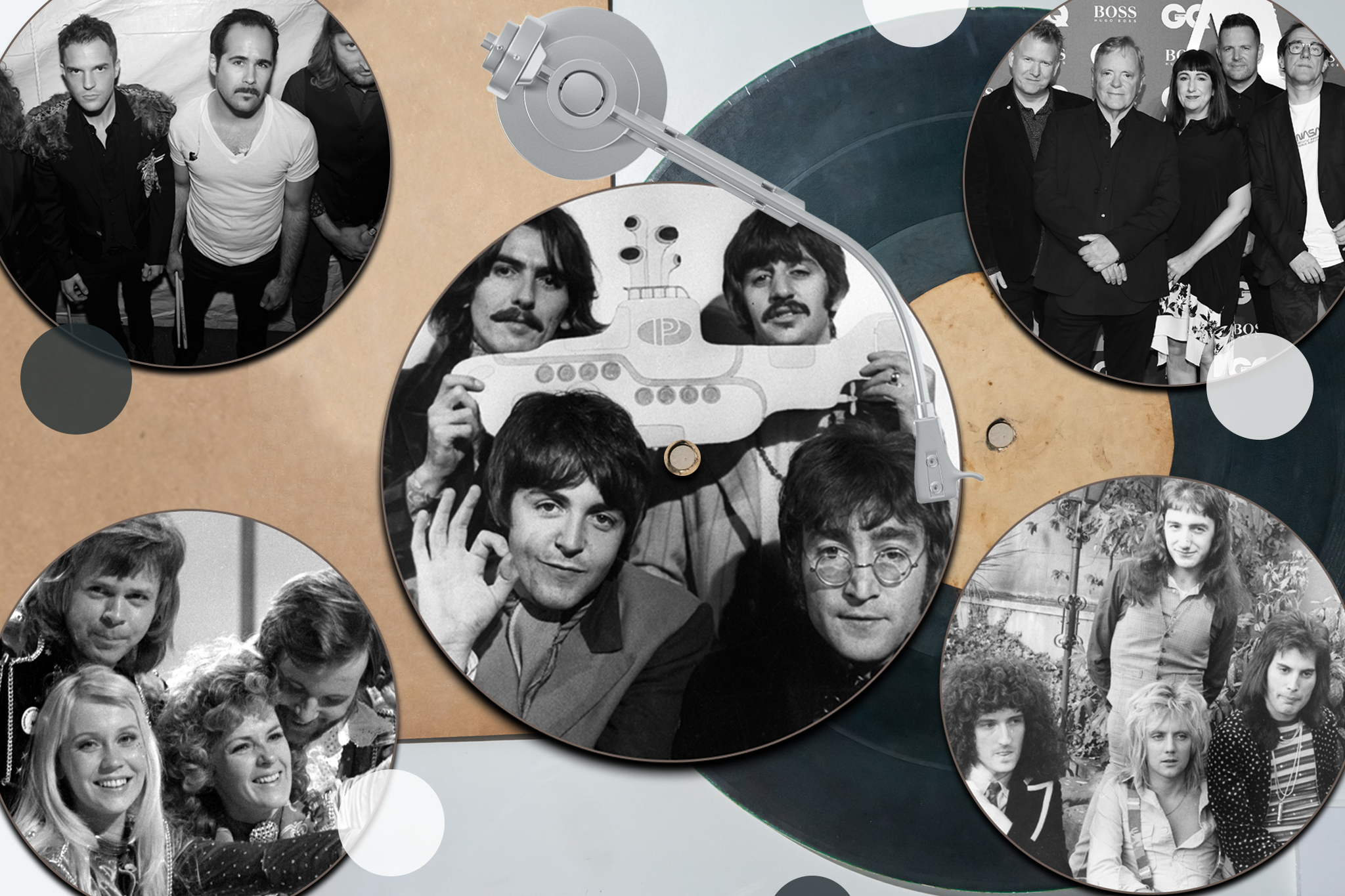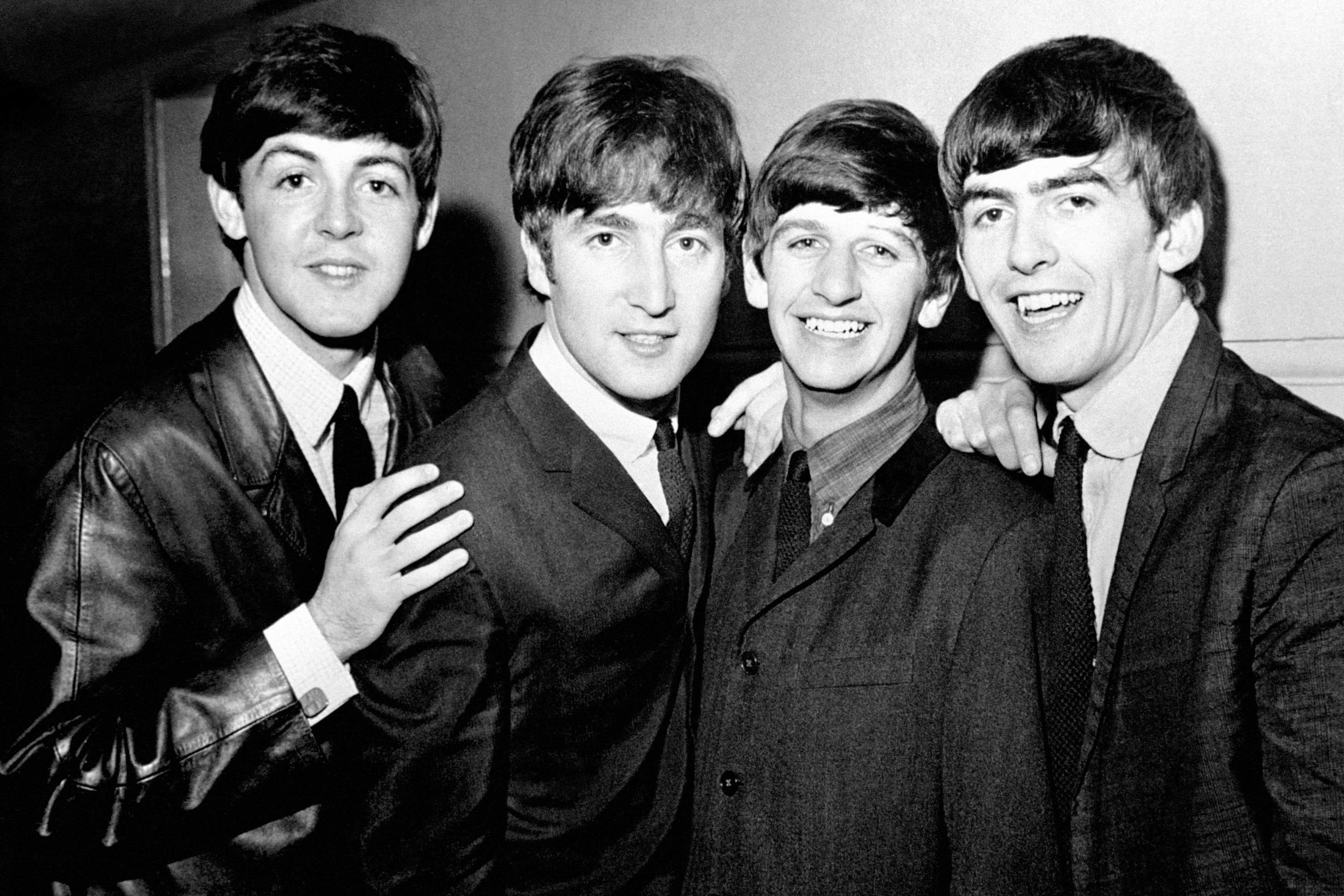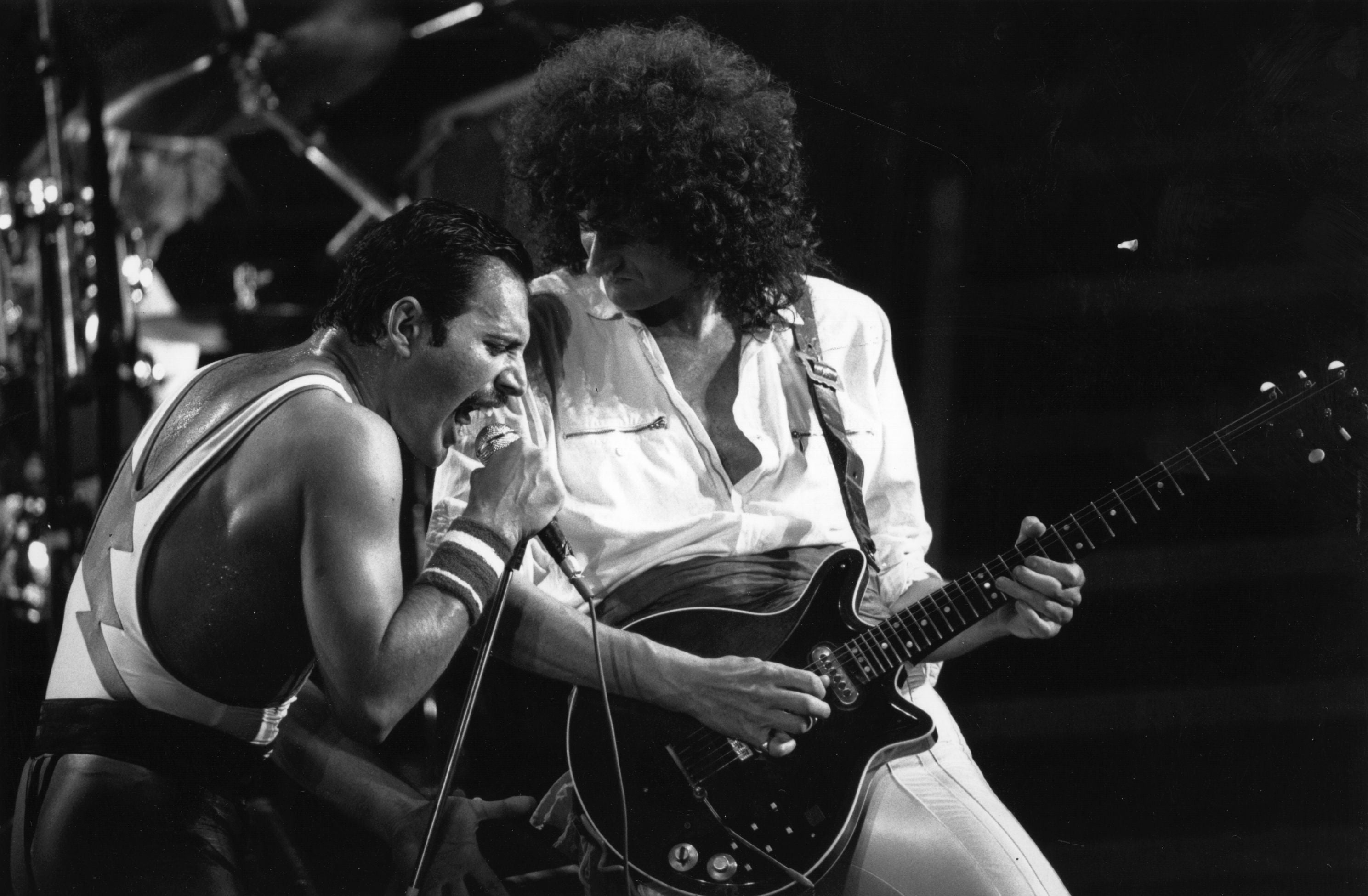Alan Partridge was right all along... the best Beatles record is their Greatest Hits album
For as long as they’ve existed, Best Of albums have been criticised as second-tier albums – light listening for day-trippers as opposed to true believers. It’s an unfairly maligned genre, writes Ed Power, just look at The Beatles, Queen or New Order

Alan Partridge was surely speaking on behalf of the silent majority when he declared his favourite Beatles album to be… The Best of The Beatles. How right he was: among the highest-selling Beatles records is their compilation album 1, which has moved 31 million copies despite its comparatively recent release date of November 2000. That’s well ahead of classics Abbey Road and Rubber Soul, and hot on the heels of Sgt Pepper’s 32 million. Give it a few years, and 1 could very well be the band’s biggest unit shifter.
The funny thing is, 1 isn’t even the best Best of The Beatles. That honour is shared by the so-called Red and Blue albums, originally released in 1973 and chronologically covering the arc of the group’s life and times (rather than focusing on their No 1 hits, as 1 does). Those records – officially, The Beatles 1962-1966 and The Beatles 1967-1970 – were reissued at the start of November in expanded, remastered editions, each featuring “Now and Then”, the so-called new Beatles song assembled from an old John Lennon demo using AI.
The re-releases have bounded up the charts and presently sit at positions two and three, trailing behind Taylor Swift’s re-recording of 1989. Their success is a reminder of the enduring potency of a cracking Greatest Hits. As is the blockbusting performance of a new vinyl reissue of New Order’s Substance 1987 singles compilation, which debuted at No 10. Put it this way: one-third of the Top 10 bestselling records last week were Best Ofs.

The lesson being that when you’re in the mood, nothing beats a rollicking good Best Of. And that’s in spite of the lingering snobbery towards the genre. There persists a widely held notion that Greatest Hits albums are for lightweights and day trippers, not true believers. It’s nonsense, of course. From Take That via The Eagles, Queen, Abba, and Sisters of Mercy, there is a sprawling list of artists whose definitive calling card is their Greatest Hits. That fact is not lost on Las Vegas indie kingpins The Killers. On 8 December, they release their second Best Of album, Rebel Diamonds, which frontman Brandon Flowers has bafflingly described as sounding “a bit like Bowie… or is it Brando?”
“There are certain artists who always do well as Greatest Hits,” says Nigel House, director of the Rough Trade chain of music stores. “Abba Gold for instance – we always sell that. When Universal put out Elton John’s Greatest Hits after Glastonbury [Diamonds (Pyramid Edition)] – that was a limited thing and it flew out. Queen do quite well. The Killers… it will be interesting to see. I don’t think it’s ever going to be like Abba or Elton.”
Greatest Hits work best with stellar singles bands. Consider New Order, whose LPs have swerved from inspired (Low Life, Technique) to average (Movement, Brotherhood). It is on singles such as “Blue Monday” and “True Faith” that they’re at their best – and that’s where Substance, which tracks the band’s career highlights from 1981 to 1987, shines.
You could say the same for Queen. Diehards will have their favourite studio records but even hardcore fans will agree there is no better document of the quartet’s pomp and splendour than 1981’s Queen: Greatest Hits. Queen, themselves, have acknowledged the degree to which it has overshadowed the rest of their output. “All those billions of streams are from the Greatest Hits,” guitarist Brian May told Vulture last summer. He sounded miffed. “We have a whole career of creating music in the album format. There’s a lot of depth there, which you don’t generally hear unless you go into it as a devotee if you like.”

As with The Beatles’ 1, Queen’s Greatest Hits is pretty much their best seller. It has shifted 21 million units in the past 40 years and was the fourth-best-selling record in the UK in the 1980s. Compare that to A Night at the Opera – the 1975 release featuring the timeless “Bohemian Rhapsody” – and its comparatively paltry 6 million sales. Queen were a so-so albums act, but undoubtedly one of the finest singles bands ever. The Greatest Hits format is where they achieve true greatness.
Neil Young’s ‘Decade’ is a triple album... otherwise you have to buy 10 albums to get a sense of Young’s catalogue
Strangely, there are some artists for whom a Best Of is an awkward fit. Robbie Williams has, in his solo career, clocked up as many smash hits as he did with Take That, whose definitive release is 1996’s Greatest Hits. Yet ask fans for their favourite Robbie moment, and they will invariably name his 1997 debut Life Thru a Lens rather than his 2004 Greatest Hits. This is because Williams’s charms aren’t simply musical; people identify with him as a vulnerable celebrity struggling in the spotlight. You can see those rough edges on his studio LPs (and in his new Netflix documentary). The glossy, just-the-hits Williams, then, is only part of the picture.

The vinyl boom has further boosted the popularity of the Best Ofs. Queen’s Greatest Hits has been reissued several times – most recently in 2021. Meanwhile, record stores are currently groaning under the weight of Beatles Red and Blue vinyl editions as they move units by the truckload. “Vinyl is moving into that area. People are going back to those Greatest Hits – they’ll say, I’ll get a Bowie Greatest Hits or a Neil Young,” says Rough Trade’s Nigel House. “Neil Young’s Decade is a triple album. That’s not a bad Greatest Hits. Otherwise you have to buy 10 albums [to get a sense of Young’s catalogue]. Sometimes they’re a good way of getting into an artist.”
It’s over two decades since Alan Partridge made his fateful pronouncement regarding The Beatles’ best album. A great deal has happened to the music industry since – file sharing, streaming, Matt Hancock singing Ed Sheeran on I’m A Celebrity… Get Me Out Of Here! – but amid those ups and downs, the Greatest Hits has retained its appeal. As The Beatles, New Order, and even The Killers are set to prove this Christmas, that trend is a long way from playing out.
Join our commenting forum
Join thought-provoking conversations, follow other Independent readers and see their replies
Comments
Bookmark popover
Removed from bookmarks